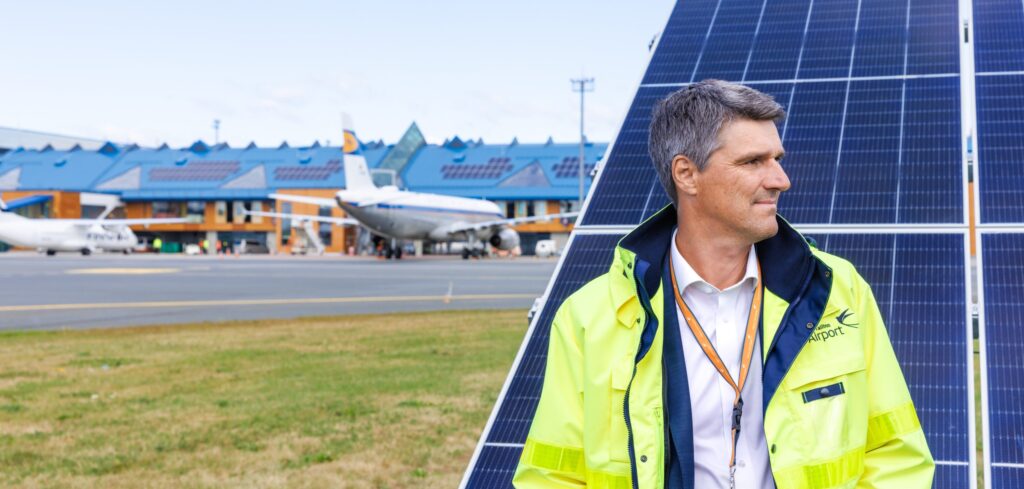Tallinn Airport in Estonia is set to reach carbon neutrality by 2025 – five years sooner than originally planned.
Over the last three years, the airport has achieved a 25% reduction in its carbon emissions. It states that it is on track to reduce this by a further 50% in 2023. “The big drop in 2022 was thanks mostly to us constructing solar farms and making the switch to district heating,” the airport said in a statement.
Tallinn Airport has worked to reduce emissions from fossil fuels because of the size of the airport and the amount of movement that takes place within it. It started testing renewables-derived Neste MY fuel in April 2023, and stopped buying fossil fuel-based diesel at the start of June. By 2024 at the latest, most of the vehicles operating in the airport will be powered by Neste MY fuel made from renewable resources or by electricity. The airport also intends that any new vehicles it buys will be zero emission, with all of the technology used at the airport being emissions-free by 2030.
Riivo Tuvike, chairman of Tallinn Airport’s management board, said, “From the start of next year we will only be buying in and using renewable energy, and not just here in Tallinn but at all of our regional airports.” To increase its energy independence, the airport’s management board will continue to construct solar farms at its airports around Estonia. Currently, the company has 15 solar farms at airports in Estonia, generating a total of 6,470kW of power.
“This has been a strategic decision on the part of the airport,” Tuvike said of the airport’s green achievements. “Achieving it will help us contribute to environmental conservation and establish us as an example of a sustainable company for others to follow. We’d set ourselves the ambitious goal of becoming a carbon-neutral airport by 2030, but the steps we’ve taken in recent years, especially last year, will enable us to achieve that by 2025.”
Jone Sestakauskaite, sustainable partnerships manager for the Baltics at Neste, said, “Neste MY renewable diesel, made from 100% sustainably sourced renewable raw materials, reduces the GHG emissions by 90% on average over the fuel’s lifecycle when compared to fossil diesel. It’s a very concrete solution that helps companies to reach their climate targets. We are glad to collaborate with Tallinn Airport and be part of its transformation journey.”
To find out more about Tallinn Airport’s latest developments, click here.


